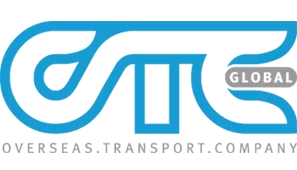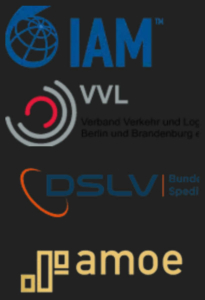Customs Regulations in Panama
Document- and Good-Standards*
Documents Required
- Rated bill of lading (OBL) / express release / air waybill (AWB)
- Copy of passport (diplomatic passport required for diplomats)
- Copy of detailed inventory
- Original packing list
- Contact information and delivery instructions for billing
- Copy of Panamanian Cedula (returning citizens)
- Copy of documents proving that the owner of the goods has lived abroad for at least 2 years (returning citizens)
- Original letter of employment addressed to Panamanian Customs (working visa)
- Original letter from bank in Panama where owner of the goods holds accounts with six figures addressed to Panamanian Customs (self-solvency visa)
- Copy of Carnet from immigration / original letter from Panamanian attorney addressed to Panamanian Customs, stating that the owner of the goods’ visa is in process (working / reforestation / self-solvency visa)
- Copy of approved visa resolution form (pensionado / jubilado visa)
- Original retirement letter from the previous working entity or the Government, stamped by Panamanian Consulate at origin (pensionado / jubilado visa)
- Copy of pensionado carnet / original letter from attorney in Panama addressed to Panamanian Customs, stating that owner of the goods’ visa is in process (pensionado / jubilado visa)
- Copy of certificate of incorporation of the Panamanian Company (investor visa)
- Copy of the social agreement / pacto social (investor visa)
- Copy of investor carnet / original letter from attorney in Panama addressed to Panamanian Customs, stating that the owner of the goods’ visa is in process (investor visa)
- Original letter from employer in Panama to Customs requesting the free entry of household goods and personal effects (diplomats)
- Original letter from the Embassy in Panama addressed to Direccion General de Aduanas requesting the liberation of shipment with previous permit (diplomats)
- Original letter from Foreign Relation Ministry addressed to Autoridad Nacional de Aduana (diplomats)
Specific Information
- The goods must be used and show evidence of use.
- The owner of the goods must be in the country when shipment arrives.
- The process to clear Customs is between 7 – 10 business days
- Original documents should be sent by courier and not through regular mail.
- All shipments are subject to inspection at the port of entry (POE), Bond Warehouse but due to cargo congestion and the potential for mishandling, the inspection may occur at the owner of the goods’ residence at the time of delivery within Panama City Limits and has an additional cost.
- This is a special service and mandatory payment by the owner of the goods directly to the government is required.
- All diplomats and public officials entering the country with a diplomatic or official passport or those arriving with a contract from the Panamanian Government have franchise privileges and will not be subject to the usual inspection or examination of the household goods by Customs; however, fumigation and inspections by quarantine may be required.
- All shipments containing wooden furniture must obtain an import quarantine permit; agent must receive documents at least 1 week prior to shipment arrival.
- Wood packing materials coming into Panama must be treated and marked according to ISPM 15.
- Wood packing materials not treated and appropriately marked may be subject to immediate export or local fumigation incurring in additional charges.
- The weight of the shipment, number of pieces and the owner of the goods’ passport number must be included on the original bill of lading.
- The commercial invoice must include the serial number, branch for electronic items, type, and material of each item listed.
- Personal effects should arrive within 6 months after the owner of the goods’ arrival date; only two shipments within this period are permitted.
- Do not include prohibited articles such as food, alcohol, firearms, ammunitions, drugs, etc. in the shipment.
- Returning Panamanians with working visa, friendly nations visa, retiree / pensionado / jubilado, investor visa, diplomats, reforestation visa and self-solvency are permitted of used household good and personal effects free of duties and taxes.
- Panamanian citizens returning to the country, after having lived abroad for no less than two years, can import free of tax on used household goods and personal effects.
- New household goods are subject to import duties of approximately 25% based on the cost, insurance, and freight (CIF) value.
- Non – citizens must go to the immigration office before the shipment arrives to port to obtain a working visa.
Motorized Vehicles*
Documents Required
- Passport copy
- Certificate of ownership
- Original certificate of title
- Motor / engine and VIN number
- Original bill of lading / express release (with costs shown)
- Original commercial invoice from the dealership where purchased
- Original retirement letter (pensionado / jubilado visa holders)
Specific Information
- Only left hand drive.
- Can take up to five months to process.
- Vehicle temporary permits are prohibited.
- All automobiles imported to Panama are subject to taxes of approximately 30% based on a Panamanian Customs Authorities appraisal plus shipping costs and insurance.
- Original retirement letter from the previous working entity or the Government, stamped by the Panamanian Consulate at origin, translated in Spanish (pensionado / jubilado visa holders).
- Pensionados or jubilados can apply for a partial exemption with a permanent pensionado carnet.
- Motor vehicles belonging to accredited diplomats, members of international organizations, or U.S. contractors are free of duties and taxes (1 vehicle only).
Pets
Documents Required
- Vaccination certificate / carnet
- Veterinary health certificate
- Domiciliary quarantine
Specific Information
- The domiciliary quarantine must be provided 3 days prior to arrival of the pet
- The veterinary health certificate must include vaccinations, be issued by a veterinarian in the origin country and be valid for a period of 10 days; it must be stamped by the Ministry of Agriculture and submitted to the Panamanian Consulate to be processed.
- The pet must arrive between 9:00 am to 3:00 pm, Monday through Friday.
- Pets arriving at other times will have to stay until the next business day; it may be possible to make arrangements with the veterinarian at the airport for flights arriving after 2:00 pm, Monday through Friday for an additional cost.
Restricted/Dutiable Items
- Cars
- Motorcycles
- Boats
- Items not considered a part of the household goods shipment
Prohibited Items
- Narcotics
- Drugs
- Food items
- Beverages / Alcohol
- Live plants
- New electronics
- Straw or hay packing in lift-vans
- Weapons, firearms, and ammunition
- Right-hand drive vehicles
Consignment Instructions
Recommended: Contact the destination agent to ensure all requirements for the customs regulations in Panama have been met prior to import, especially for differences regarding air / sea shipments.
Contact us here for an individual inquiry
Questions about moving or shipping to Panama? Send us an individual inquiry or simply give us a call!
Our experienced team provides detailed advice without obligation.
Helpful Links:
Transport/Removal enquiry for Panama
Travel.State.Gov – Panama Country Info
USembassy.Gov – Panama
Cultural and Other Information:
CIA World Factbook Entry for Panama
Wikipedia Entry for Panama
The preceding conditions for the customs regulations in Panama are provided by the International Association of Movers – IAM. For more information please visit: http://www.iamovers.org/
* Depending on your personal situation, the following documents for the customs regulations in Panama may be relevant. For individual cases or specific information, click here – we and our agents are at your disposal.
All specifications are without guarantee and based on our own research. We do not take any claim of completeness as well as correctness. We cannot guarantee that the content is updated and accurate and suggest to the concerned people that it is urgently required to obtain the current information from official authorities and involved service providers like customs agents in the respective importing countries before the individual removal project starts.


